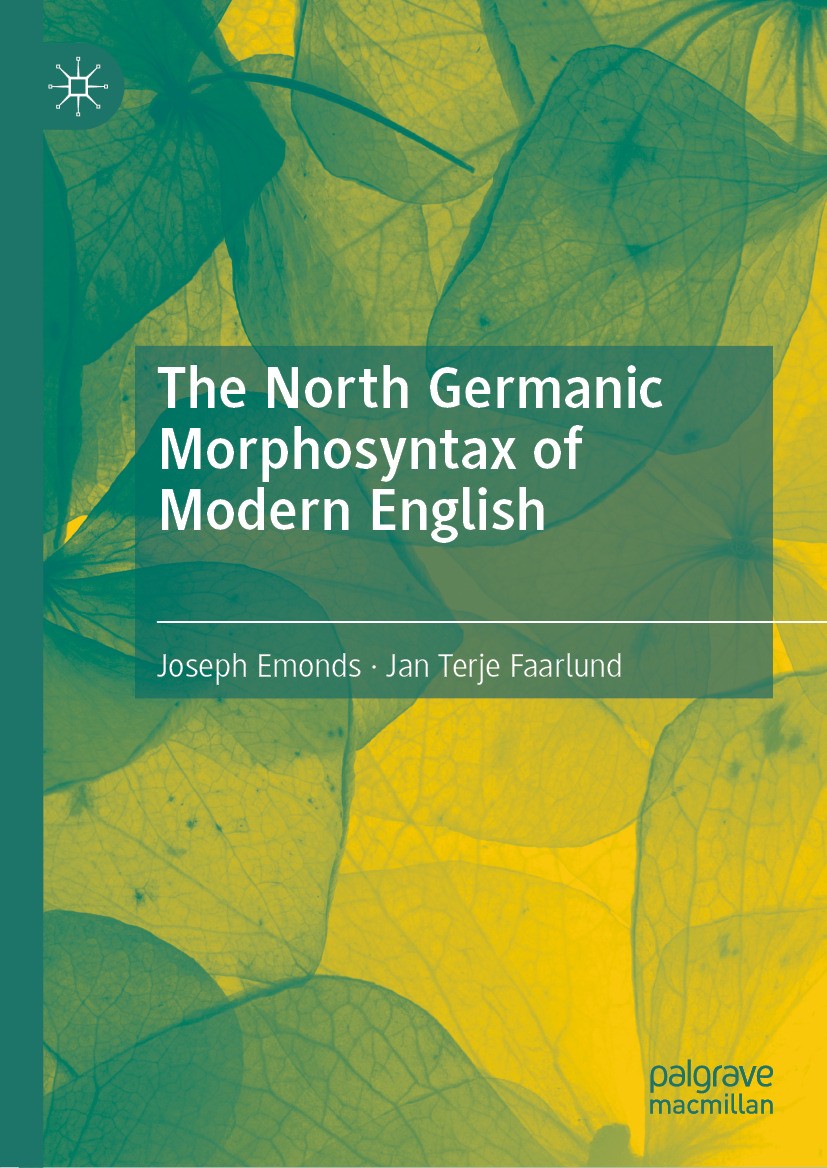| 书目名称 | The North Germanic Morphosyntax of Modern English | | 编辑 | Joseph Emonds,Jan Terje Faarlund | | 视频video | http://file.papertrans.cn/916/915110/915110.mp4 | | 概述 | Argues that the linguistic ancestor of Middle English is North Germanic, rather than Old English.Draws on analysis of properties such as word order, particles, participles and case inflections.Promote | | 图书封面 |  | | 描述 | .This book argues that Middle English - and hence Modern English - is a direct descendent of Anglo Norse, the language of Viking settlers who invaded and ruled the north and east of England (the so-called Danelaw) for about 200 years preceding the Norman conquest. The authors challenge the widely accepted assumption that Middle English descends from Anglo-Saxon. Presenting over 20 arguments in morphology and syntax, they show that the patterns found in standard history of English sources derive from the North Germanic Scandinavian languages. The book shows that, while Danes ruled all England (1013-1066), their Anglo-Norse, lexically but not grammatically close to Anglo-Saxon, superseded the latter throughout England. Sentential word order, modern phrasal verbs, stranded prepositions, and standard regular noun plurals, phonetic .z., and split infinitives became Norse hallmarks that persist to this day, while numerous indications of West Germanic (German-style) grammar disappeared entirely. As Anglo-Norse became Middle English, it absorbed much vocabulary from the Anglo-Saxons. This book suggests that in the Middle English German-sourced vocabulary, eliminating borrowed Romance, pure | | 出版日期 | Book 2024 | | 关键词 | language contact; vocabulary; Old English; Middle English; Old Norse; North Germanic; West Germanic; Norman | | 版次 | 1 | | doi | https://doi.org/10.1007/978-3-031-64167-1 | | isbn_softcover | 978-3-031-64169-5 | | isbn_ebook | 978-3-031-64167-1 | | copyright | The Editor(s) (if applicable) and The Author(s), under exclusive license to Springer Nature Switzerl |
The information of publication is updating

|
|
 |Archiver|手机版|小黑屋|
派博传思国际
( 京公网安备110108008328)
GMT+8, 2026-1-25 05:20
|Archiver|手机版|小黑屋|
派博传思国际
( 京公网安备110108008328)
GMT+8, 2026-1-25 05:20


